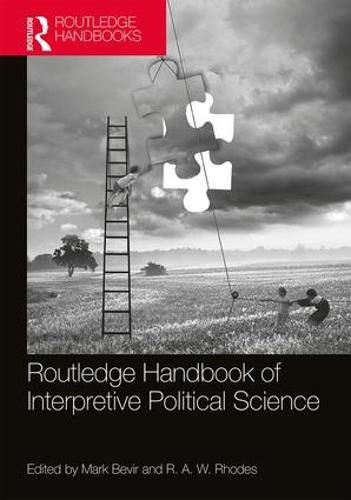Readings Newsletter
Become a Readings Member to make your shopping experience even easier.
Sign in or sign up for free!
You’re not far away from qualifying for FREE standard shipping within Australia
You’ve qualified for FREE standard shipping within Australia
The cart is loading…






Interpretive political science focuses on the meanings that shape actions and institutions, and the ways in which they do so. This Handbook explores the implications of interpretive theory for the study of politics. It provides the first definitive survey of the field edited by two of its pioneers. Written by leading scholars from a range of disciplinary backgrounds, the Handbook’s 32 chapters are split into five parts which explore:
the contrast between interpretive theory and mainstream political science;
the main forms of interpretive theory and the theoretical concepts associated with interpretive political science;
the methods used by interpretive political scientists;
the insights provided by interpretive political science on empirical topics;
the implications of interpretive political science for professional practices such as policy analysis, planning, accountancy, and public health.
With an emphasis on the applications of interpretive political science to a range of topics and disciplines, this Handbook is an invaluable resource for students, scholars, and practitioners in the areas of international relations, comparative politics, political sociology, political psychology, and public administration.
$9.00 standard shipping within Australia
FREE standard shipping within Australia for orders over $100.00
Express & International shipping calculated at checkout
Interpretive political science focuses on the meanings that shape actions and institutions, and the ways in which they do so. This Handbook explores the implications of interpretive theory for the study of politics. It provides the first definitive survey of the field edited by two of its pioneers. Written by leading scholars from a range of disciplinary backgrounds, the Handbook’s 32 chapters are split into five parts which explore:
the contrast between interpretive theory and mainstream political science;
the main forms of interpretive theory and the theoretical concepts associated with interpretive political science;
the methods used by interpretive political scientists;
the insights provided by interpretive political science on empirical topics;
the implications of interpretive political science for professional practices such as policy analysis, planning, accountancy, and public health.
With an emphasis on the applications of interpretive political science to a range of topics and disciplines, this Handbook is an invaluable resource for students, scholars, and practitioners in the areas of international relations, comparative politics, political sociology, political psychology, and public administration.